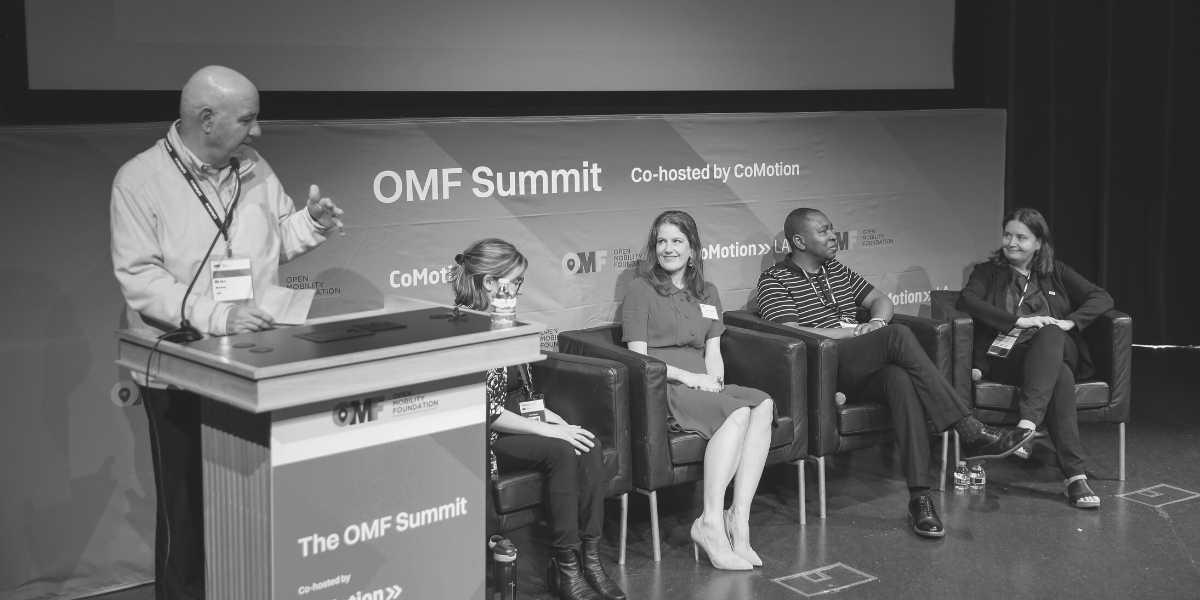As we bid farewell to 2023, it’s the perfect time to reflect on our incredible journey at the Open Mobility Foundation (OMF). This year has been transformative, marked by lessons that have shaped our vision for the future, key themes that resonated across our community, and unprecedented collaboration and progress.
DIGITAL INFRASTRUCTURE
In four short years, the OMF has grown from an idea on paper into an organization with six staff members, more than 65 public and private sector members, multiple active projects, and a strong track record of helping local governments create better outcomes for residents through data-driven transportation management. From dockless micromobility to delivery robots and autonomous vehicles, the role of data and technology in the public sphere has only accelerated since our founding. Technology and the need for reliable digital infrastructure is no longer novel – it’s essential.
This year, we’ve seen leaders call for a reimagining of civic innovation from the “smart cities” initiatives of the past to something more connected to community goals and tangible impact. We’ve seen renewed urgency to build the data and digital infrastructure required for cities to keep up with the pace of change and work alongside private companies to improve the quality of life on city streets and in public spaces. 2023 began with a strong programmatic focus on digital infrastructure, both through a convening series hosted by the OMF with support from the Rockefeller Foundation, and later, the announcement of $94 in grant funding through the USDOT’s SMART Grant Program.
Digital Infrastructure Convening Series
Despite the many positive outcomes achieved by the OMF, questions remained about the organization’s role in developing the digital infrastructure of the future. To answer these questions, the OMF, our stakeholders, and members of the mobility and technology ecosystems undertook a strategic planning exercise in the form of a convening series. With support from the Rockefeller Foundation and expertise from Cityfi, this convening series resulted in a renewed vision and mission for the OMF, a plan to ensure both long-term impact and sustainability, and an exploration of key use cases that build toward this future. After document reviews, stakeholder interviews, and multiple in-person and virtual workshops, the project wrapped up in August 2023. See the resulting Strategic Roadmap.
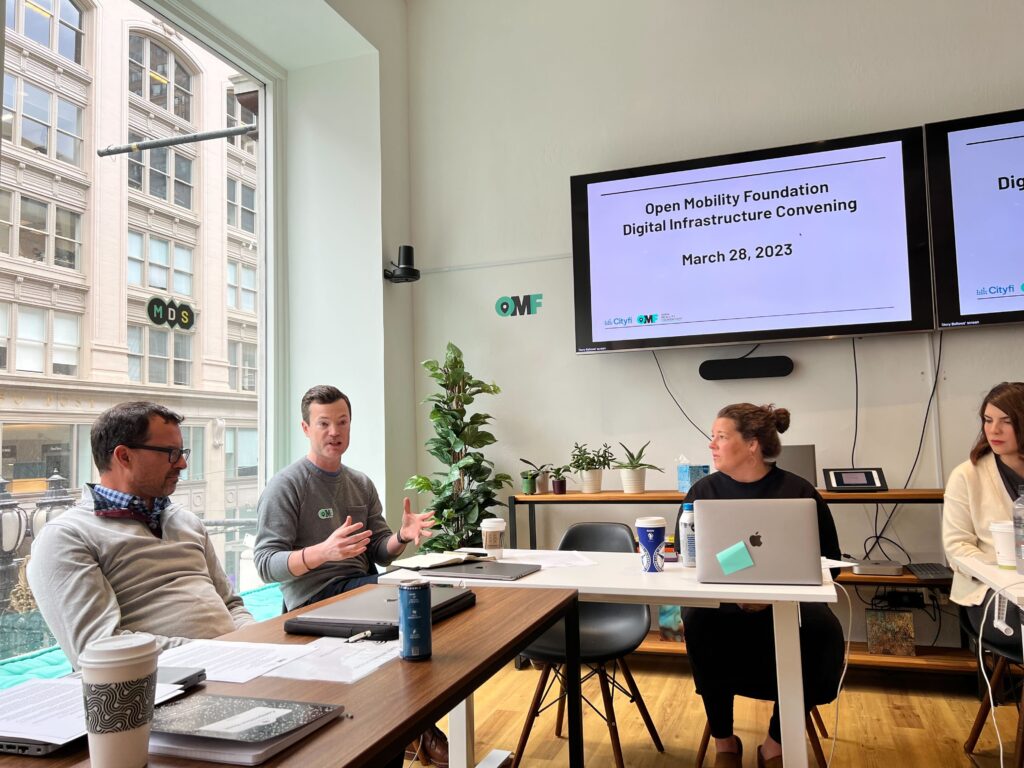
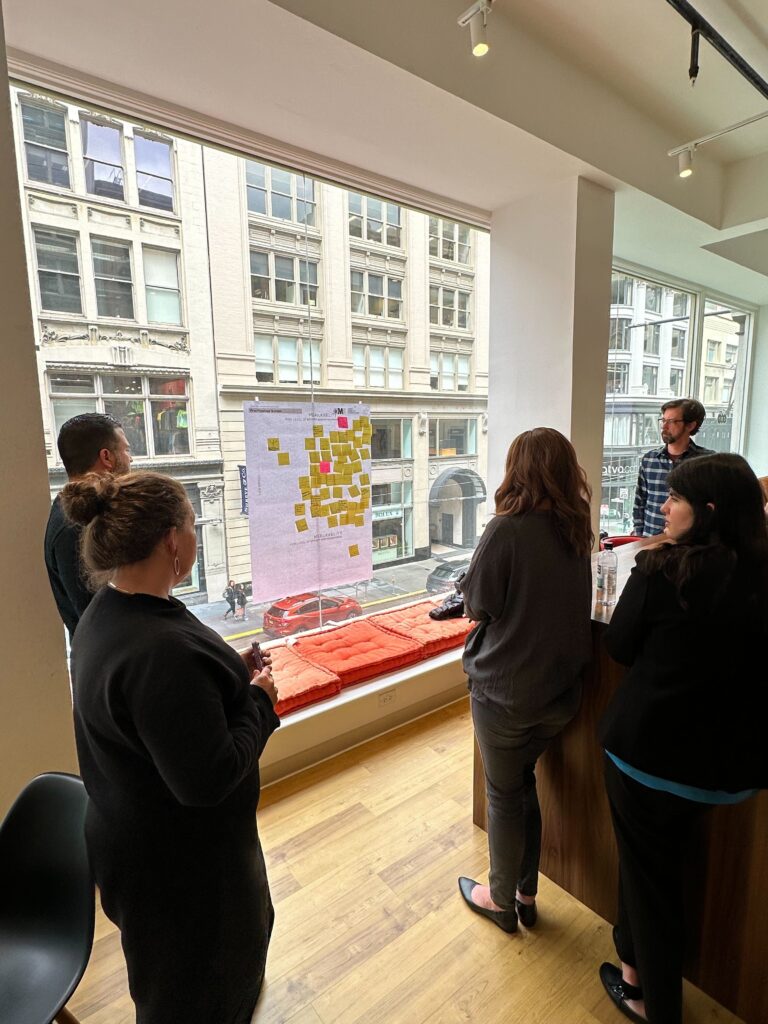
SMART Grant Collaborative
In March 2023, USDOT’s Strengthening Mobility and Revolutionizing Transportation (SMART) grant program announced its first round of funding, awarding $94 million in grants to 59 projects across 33 states. Thanks to this grant, cities across the United States have the funding needed to build data and technology capacity – a critical part of developing the digital infrastructure needed to create safer, more equitable, and environmentally sustainable transportation systems.
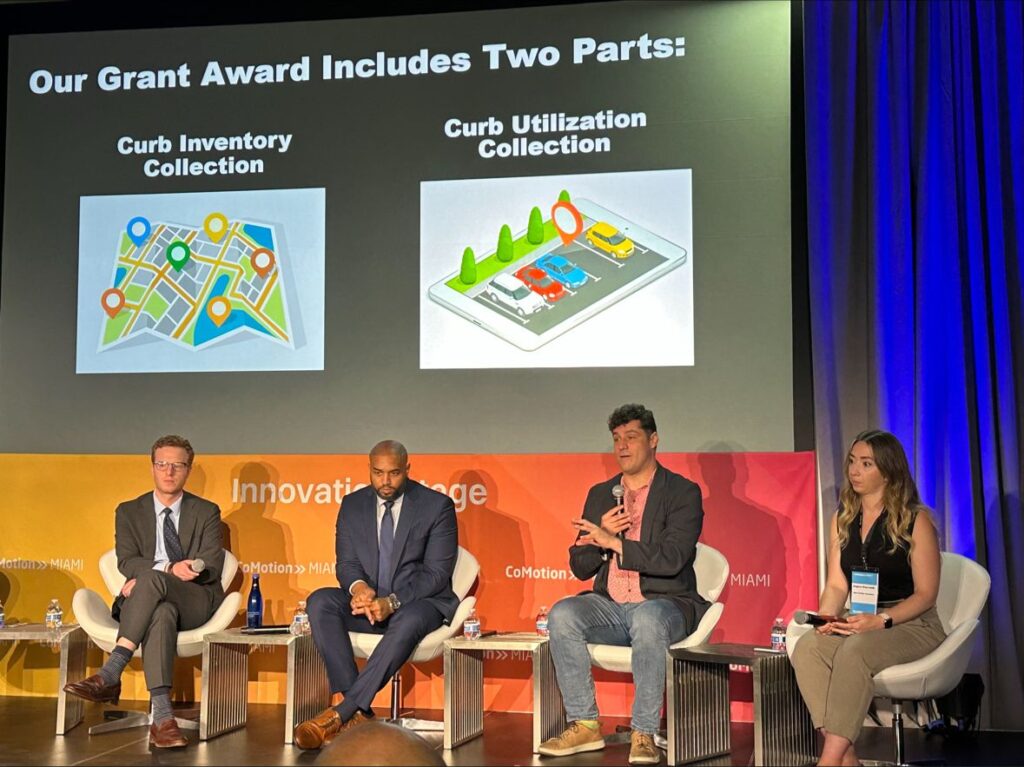
Nine of these cities (Buffalo, Seattle, Portland, San Francisco, San Jose, Los Angeles, Minneapolis, Philadelphia, and Miami-Dade County) are part of a collaborative effort coordinated by the OMF, aimed at tackling a common problem with similar technologies – specifically to digitally gather and analyze curb information to reduce congestion, enhance livability, and improve safety and equity on city streets. The shared, open-source Curb Data Specification (CDS) – developed by the OMF and released in 2022 – lies at the heart of this collaborative effort.
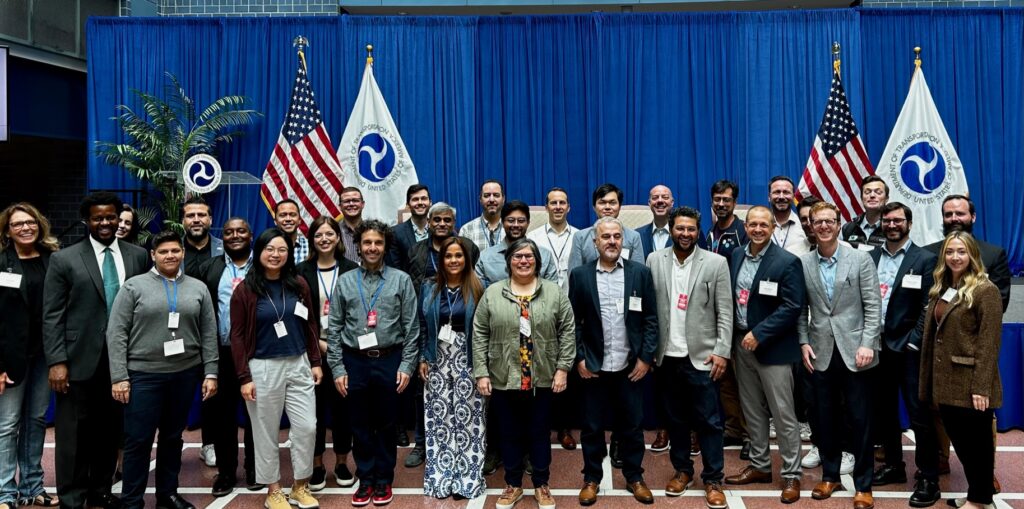
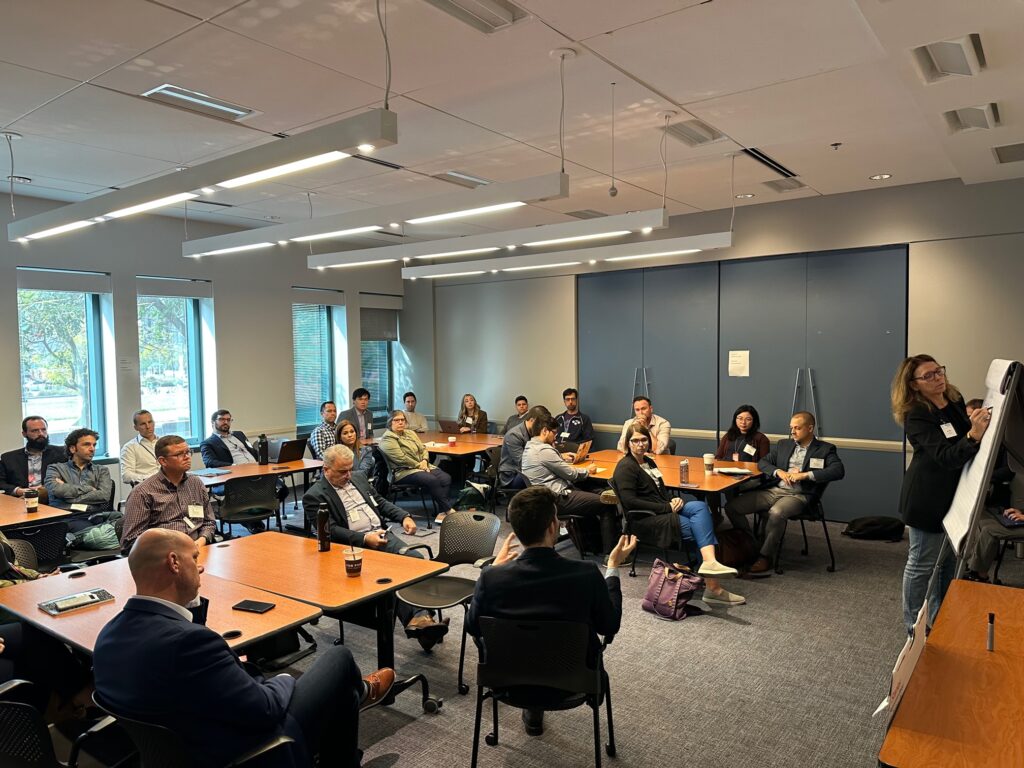
As we continue to work with this collaborative of cities, we look forward to seeing USDOT’s investment in digital infrastructure help city officials and their communities better understand the use of public space and adjust strategies to improve safety and other outcomes. Learn more about the SMART Grant Collaborative.
BUILDING BEYOND MICROMOBILITY
The Mobility Data Specification (MDS) was initially developed by cities in 2018. At this time, dockless e-scooters were rapidly launching in many U.S. cities, which were tasked with managing this new mode amidst resident concerns around sidewalk accessibility and the safety of both riders and pedestrians. The goal was two-fold: (1) to provide a free and open-source, standardized way for municipalities to ingest, compare, and analyze data from mobility service providers; and (2) to allow municipalities to communicate with mobility providers and ensure their adherence to governing regulations.
Mobility Data Specification (MDS) 2.0
While the goals remain the same, MDS 2.0 was released in May 2023 at CoMotion MIAMI and represents a significant advancement in OMF’s mission to transform mobility in the digital age. In addition to shared e-scooters and bikes, MDS now supports passenger services (like taxis, robotaxis, and ridehail services), car-sharing, and delivery robots. This new version resulted from more than a year and a half of collaborative development. MDS 2.0 was created through OMF’s unique open source governance model and incorporates feedback from hundreds of people representing dozens of organizations across the public and private sectors. Learn more about the new version of the specification, including a full feature list.
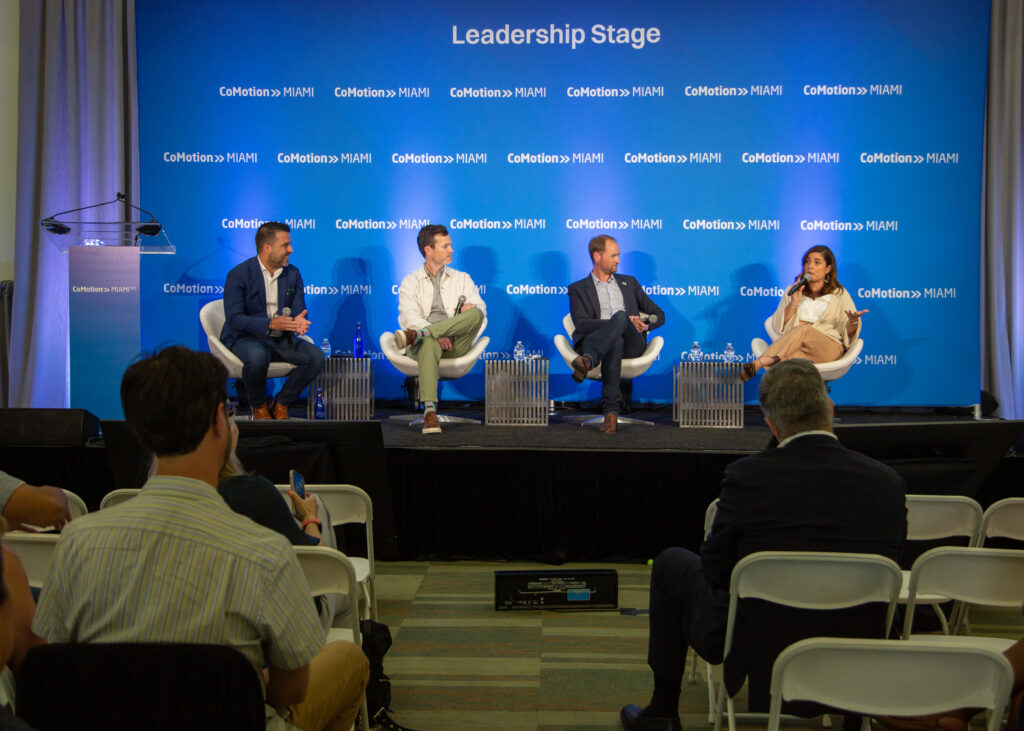
CULTIVATING A CONNECTED COMMUNITY
To serve as effective stewards of open data standards, the OMF has long focused our efforts on serving as a community of practice; a forum for sharing, discussion, debate, and consensus-building. As local government is often at the forefront of change, creating opportunities for city leaders and staff to learn from one another is of great value, as is working across sectors and roles to align on goals and build workable solutions. This year, consensus-building and best practice sharing took the form of growing our community and finding new ways to connect and learn from each other.
New Members & Advisors
We welcomed almost two dozen new members from across the public and private sectors who are working to lead the organization and tackle new challenges. New membership growth included several companies helping cities solve problems at the curb, many of which we heard from at our February Demo Day – a virtual showcase of curb management products and services for OMF members.
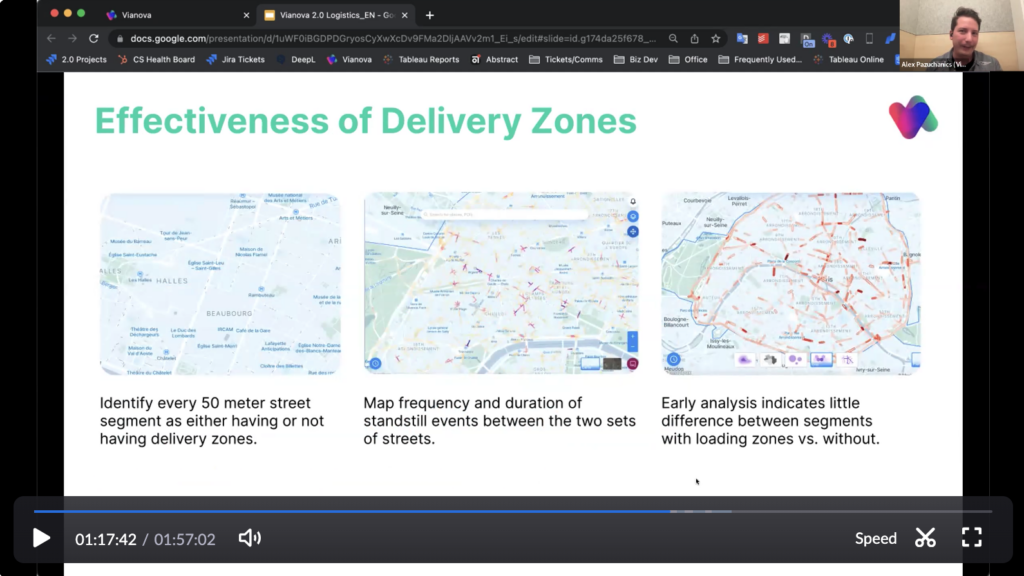
Plus, we welcomed our first international Board member representing the City of Amsterdam, Gemma Schepers, and two new Advisory Board members: MaaS Alliance and Urban Freight Lab at the University of Washington. These voices help bring the perspective of European cities and new subject matter experts to the Open Mobility Foundation’s work.
OMF Abroad
This summer, OMF’s Executive Director had the incredible opportunity to visit several international cities to exchange ideas and make new connections in the mobility ecosystem. Some themes observed were a shift towards digital infrastructure, the different ways cities addressed the urgent challenges of climate change, and the common concern around reducing commutes and improving affordability. From Brisbane’s transition to a thriving metropolis to Amsterdam’s famous bike-friendly infrastructure, learn more about how cities worldwide tackle challenges and embrace open-source data standards.
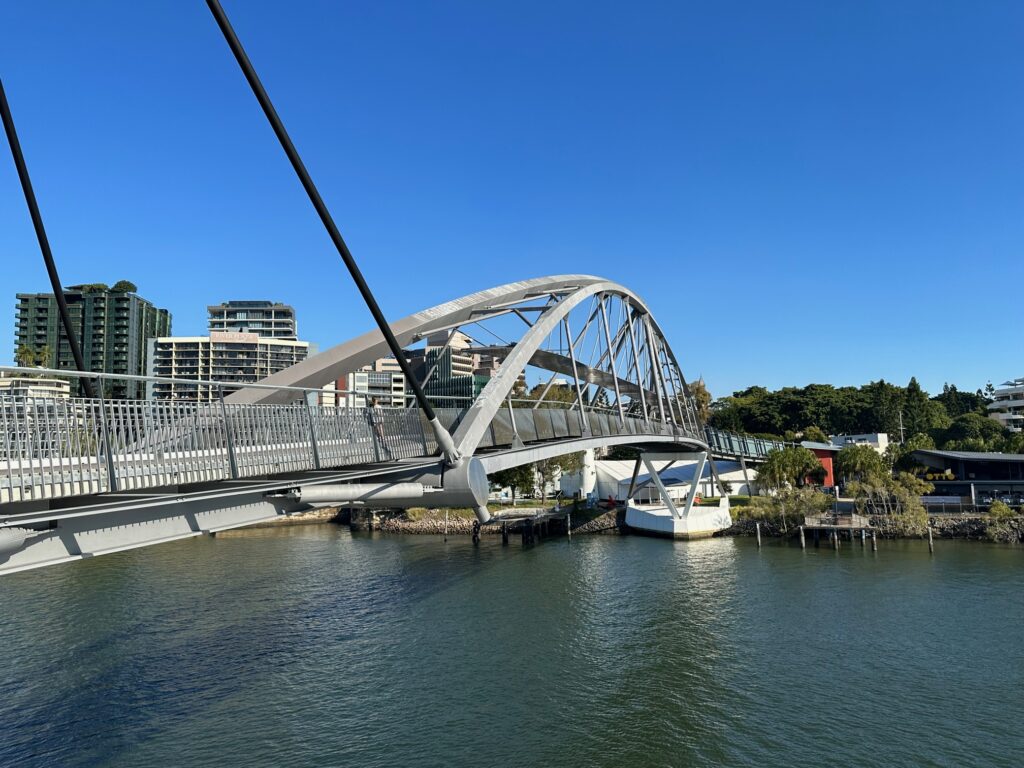
To keep the international exchange of ideas flowing, we partnered with POLIS Network to host a public webinar about low emissions zone programs. This virtual event brought together European and North American cities to exchange ideas and discuss the role of data and digital tools like MDS and CDS in setting and communicating policies, managing compliance, and calculating metrics. See the recording.
OMF Summit at CoMotion LA
From Curbivore, Urbanism Next, and MetroLab to CoMotion Miami, ITS America, and the POLIS Conferences there were many chances to connect with OMF members, staff, and the community at in-person events worldwide in 2023.
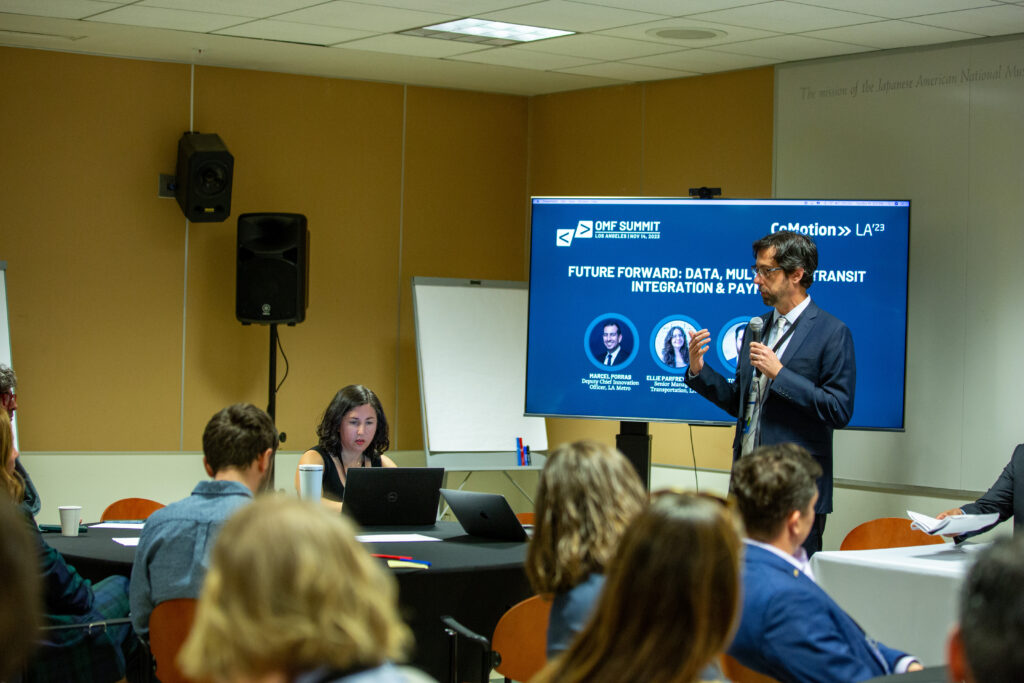
We ended the year co-hosting our very own OMF Summit as part of CoMotion LA ‘23. At the OMF Summit, 150+ attendees from across public and private sectors explored the latest advancements in our flagship tools and came together to envision a smarter, digitally integrated urban world. We discussed the future of civic innovation, smart curb strategies, and digital policy, and worked together to address issues around data, multi-modal transit integration, and payment.
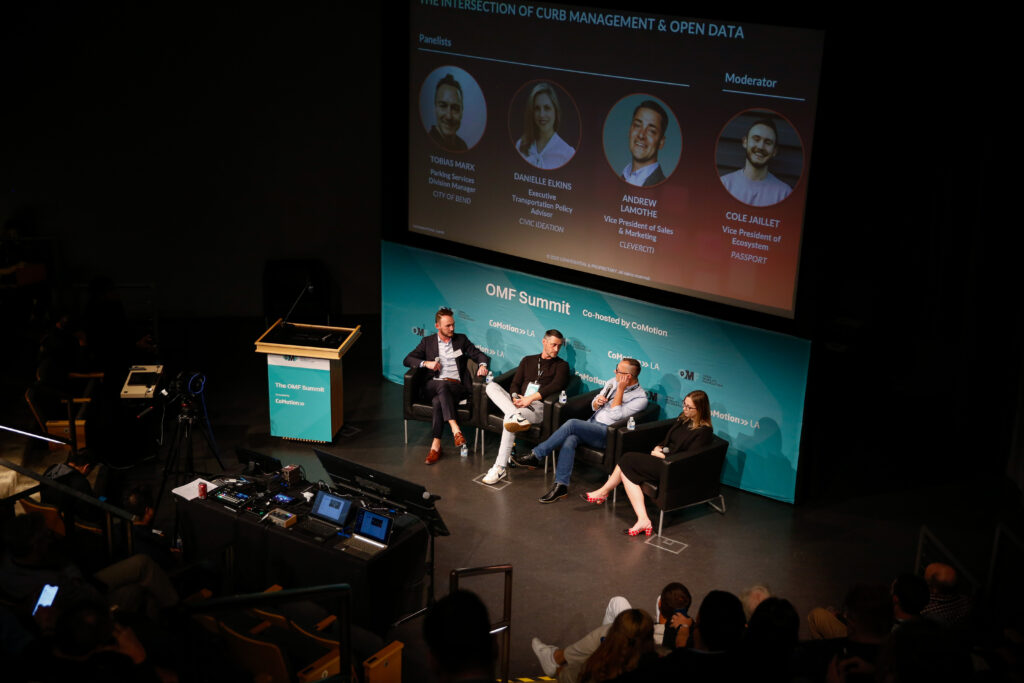
Heading into 2024, we’re looking forward to exploring these concepts – and more – alongside our growing community. Stay tuned for more of what’s ahead in the new year!

